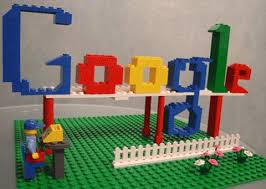


(Almost) Every day I go to a bakery that is right downstairs from where I work. It’s a very simple place, it has nothing special except the fact that they make the best croissants I’ve had in Barcelona. So I go there and I order a cup of coffee with one of those butter croissants. I read the newspaper and I work with my laptop. Croissants are great, the rest is okay. But I go every day.
The other day I found a much nicer bakery, with better-looking products and a nicer decoration that is on the other side of the block. If my bakery is a 1-minute walk, the other one is a 3-minute walk. Still, I keep going to my bakery… and I wonder why.
I use Google search on a daily basis and I know (because it’s kind of my job to know that) that other search engines like Ask, Yahoo or Bing are at least as good as Google, perhaps even better in some accounts. Still, I keep going to Google… and I wonder why.
I love reading. I like to keep the books that I have read and liked near me, visible and touchable. Most of times I buy from Amazon.com, although this means that I have to wait for the books to come from the USA all the way to Barcelona and that with the shipping costs it won’t be cheaper than buying here. Still, I keep buying from Amazon… and I wonder why.
For a business student one plausible and very frequent explanation for why people stick with services that they often don’t love and that don’t offer the best value is the notion of switching costs. Changing providers has a cost (as you can see if you want to drop your phone company, in terms of money and papework nightmares, same for email, banking, insurance etc…) and this is what gets people to stick.
But what’s keeping me from going to the other bakery? A 2-minute walk, worse croissants and the store keepers are too friendly. What’s keeping me from going to Bing instead of Google? 2 letters less when I punch the letter on my browser. What’s keeping me from going to a local bookstore, online or not? One click with my mouse, or a 5 minute walk.
Although in the case of the bakery I would argue that the 2-minute walk does make a difference, the more likely answer is that I go to my bakery, to Google and to Amazon because they have powerful brands.
In the era of the internet there are very few powerful internet brands, and that is a nice opportunity. Many are emerging, in Spain if you think classifieds, you think Loquo. If you think real-estate you think Idealista. If you think news, well, you have your usual newspaper. If you think cheap clothes you think Privalia. But there are way too many categories that are dominated by weak brands, like travel where there are many players but they offer the same thing… and this means that their business is driven by market power (and spending) rather than by branding power.
I believe it’s important to join (or create) a company that has a strong brand, is immediately associated to a product category, particularly if that category is small and growing.
Here is an example of a young, dynamic company with a strong brand in a small category: “Smartbox, the world leader in gift experience.” They literally invented a new category, so they own it… and when the category grows because other players come in, they grow more than the rest. They are the category.
Philippe
Check our Smartbox job opportuninites in France http://www.smartbox.com/fr/recrutement.jsp













